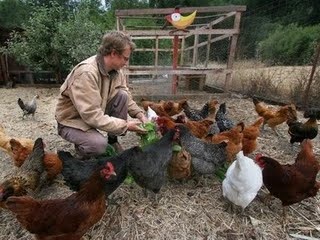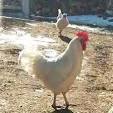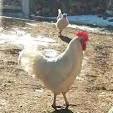
Revive Your Homestead: The Enduring Appeal of Heritage Breed Chickens
There's something deeply satisfying about a life connected to the land, a life where you know where your food comes from and have a hand in its creation. We see it in the renewed interest in homesteading, the burgeoning backyard garden movement, and the quiet revolution of people seeking a simpler, more self-sufficient way of life. But amidst the modern breeds of chickens that dominate the poultry market, something valuable has been lost – the heritage breeds. For beginner and intermediate homesteaders, rediscovering these remarkable birds is not just a trip down memory lane; it's a powerful step toward building a more resilient and rewarding homestead.
Imagine a flock of chickens, each with its own unique personality and purpose, scratching and pecking in your backyard. Unlike the factory-farmed birds of today, heritage breeds are naturally hardy, possess a diverse range of traits, and connect us to a vital piece of agricultural history. In this post, we'll explore what makes a chicken a "heritage breed," why preserving them matters, and how you can choose, raise, and benefit from these amazing birds on your homestead. Beyond the eggs and meat, we will delve into how Heritage Breed Chickens contribute to your soil health, pest control, and biodiversity.

What Are Heritage Breed Chickens & Why Are They Important?
Defining a heritage breed chicken goes beyond just saying it's an "old-fashioned" chicken. The American Livestock Breeds Conservancy (ALBC), a leading authority on breed conservation, offers a specific definition that focuses on several key traits:
- Naturally Mating: Heritage breed chickens must be able to reproduce naturally through mating, without artificial insemination.
- Genetic Diversity: They must possess a wide range of genetic traits, making them adaptable to different environments and resistant to disease. This is far from a breed that has been cross bred into oblivion.
- Outdoor Lifespan: Heritage breeds are bred to thrive outdoors, with a longer productive lifespan than modern, fast-growing breeds. They have an expected lifespan in the outdoors of 5-7 years.
- Slow Growth Rate: Unlike modern meat breeds that reach market weight in a matter of weeks, heritage breeds grow at a slower, more natural pace.
The importance of preserving heritage breeds stems from the alarming loss of genetic diversity in our food systems. Industrial farming has led to a heavy reliance on a small number of highly specialized breeds, leaving us vulnerable to disease outbreaks and climate change. Heritage breeds, with their unique genetic makeup, offer a valuable reservoir of traits that can help us build more resilient and sustainable farms and homesteads. They are also more resistant to diseases and are adaptable to varied climates.
But these types of breeds are not just about practicality and resistance; it's about connecting with history. For centuries, these breeds were the foundation of small family farms, providing eggs, meat, and a vital link to the land. By raising heritage breeds, we're helping to preserve this valuable agricultural heritage.
Debunking the Myths
There are a few misconceptions about heritage breeds, which is important to address up front. You might hear that heritage breeds produce fewer eggs or that they are more difficult to raise than modern hybrids. While it's true that heritage breeds may not lay as many eggs as highly specialized layers like the Leghorn, many heritage breeds are still excellent egg producers. And while they may require a bit more attention to management, they are generally hardy and resilient birds that thrive in a free-range environment. Give these breeds a chance and do not let the rumors scare you away.
Key Takeaway: Heritage breeds are more than just chickens; they're a link to the past and a key to a more resilient and sustainable food system.
Choosing the Right Heritage Breed for Your Homestead
Selecting the right heritage breed for your homestead requires careful consideration of your climate, goals, and available space. There's no one-size-fits-all answer, but here are some factors to keep in mind:
- Climate Considerations: Some breeds are better suited to cold climates, while others thrive in hot, humid conditions. For example, the Buckeye is a cold-hardy breed that originated in Ohio, while the White Leghorn is more heat-tolerant. In hotter climates, it is best to find light-colored, lighter-weight breeds.
- Purpose and Productivity: What do you want from your chickens? Are you primarily interested in eggs, meat, or both? Some breeds, like the Rhode Island Red, are excellent layers, while others, like the Jersey Giant, are known for their meat production.
- Temperament and Flock Dynamics: Some breeds are more docile and friendly than others. Consider your personal preferences and how well different breeds will integrate into an existing flock. For instance, Silkies are known to be very friendly and gentle.
Supporting breeders actively involved in heritage breed conservation is essential. There are several organizations dedicated to preserving these breeds, and purchasing your chickens from reputable breeders helps to ensure their survival. Check out the American Livestock Breeds Conservancy (ALBC) website for more information and a list of breeders in your area.

Key Takeaway: Consider your homestead's specific needs and climate when selecting heritage breeds. Choose breeds that fit your goals and contribute to the conservation of these valuable animals.
Raising Heritage Breed Chickens: A Practical Guide
Raising heritage breed chickens is similar to raising any other type of chicken, but there are a few key differences to keep in mind.
- Brooding and Chick Care: Heritage breed chicks grow at a slower rate than modern hybrids, so be patient. Provide them with a warm, clean brooder, fresh water, and a high-quality chick starter feed.
- Pasture Management and Coop Design: Heritage breeds thrive in a free-range environment, so provide them with ample space to roam and forage. Pasture rotation is essential for maintaining soil health and controlling parasites. Your coop should be spacious, well-ventilated, and provide protection from predators.
- Feeding and Nutrition: Heritage breeds require a balanced diet that meets their nutritional needs. Offer them a high-quality layer or meat bird feed, depending on your goals. Supplement their diet with fresh greens, insects, and other natural foods that they can forage for in your pasture.
- Disease Prevention and Natural Remedies: Good hygiene and proper management are essential for preventing disease in heritage breed chickens. Provide them with clean water, fresh bedding, and plenty of space to avoid overcrowding. Consider using natural remedies like garlic, apple cider vinegar, and herbs to boost their immune systems.

Key Takeaway: With proper care and management, heritage breed chickens can thrive on your homestead and provide you with a sustainable source of eggs and meat.
Benefits Beyond Eggs & Meat: How Heritage Chickens Enhance Your Homestead
Heritage chickens offer a wealth of benefits beyond just eggs and meat. They can be valuable partners in creating a more self-sufficient and sustainable homestead.
- Pest Control: Chickens are natural foragers and will happily devour insects, grubs, and other pests in your garden and pasture.
- Soil Improvement: Chicken manure is a valuable source of nutrients that can be composted and used to enrich your soil.
- Composting Assistance: Chickens can help accelerate the composting process by turning and aerating compost piles.
- Biodiversity Boost: By raising heritage breeds, you're helping to maintain genetic diversity and support local ecosystems.

Key Takeaway: Heritage chickens are valuable partners in creating a self-sufficient and sustainable homestead, providing benefits that extend far beyond eggs and meat.
Reviving your homestead with heritage breed chickens is a journey that connects you to the past and empowers you to build a more sustainable future. These amazing birds offer a wealth of benefits, from providing delicious eggs and meat to enriching your soil and controlling pests. By choosing to raise heritage breeds, you're not only preserving a valuable agricultural heritage but also contributing to a more resilient and rewarding homesteading experience. Right now, as spring arrives, is a perfect time to prepare your brooder and start researching the right heritage breed for your homestead.
We invite you to share your experiences with heritage breed chickens in the comments section below. What breeds have you raised? What challenges have you faced? What advice would you give to someone just starting out? Let's build a community of heritage chicken enthusiasts and share our knowledge and passion for these remarkable birds. And don't forget to share this post on social media using the hashtag #heritagechickens #homesteading #sustainablefarming #backyardchickens #farmhouse life. Join the movement towards a more sustainable future, one chicken at a time.